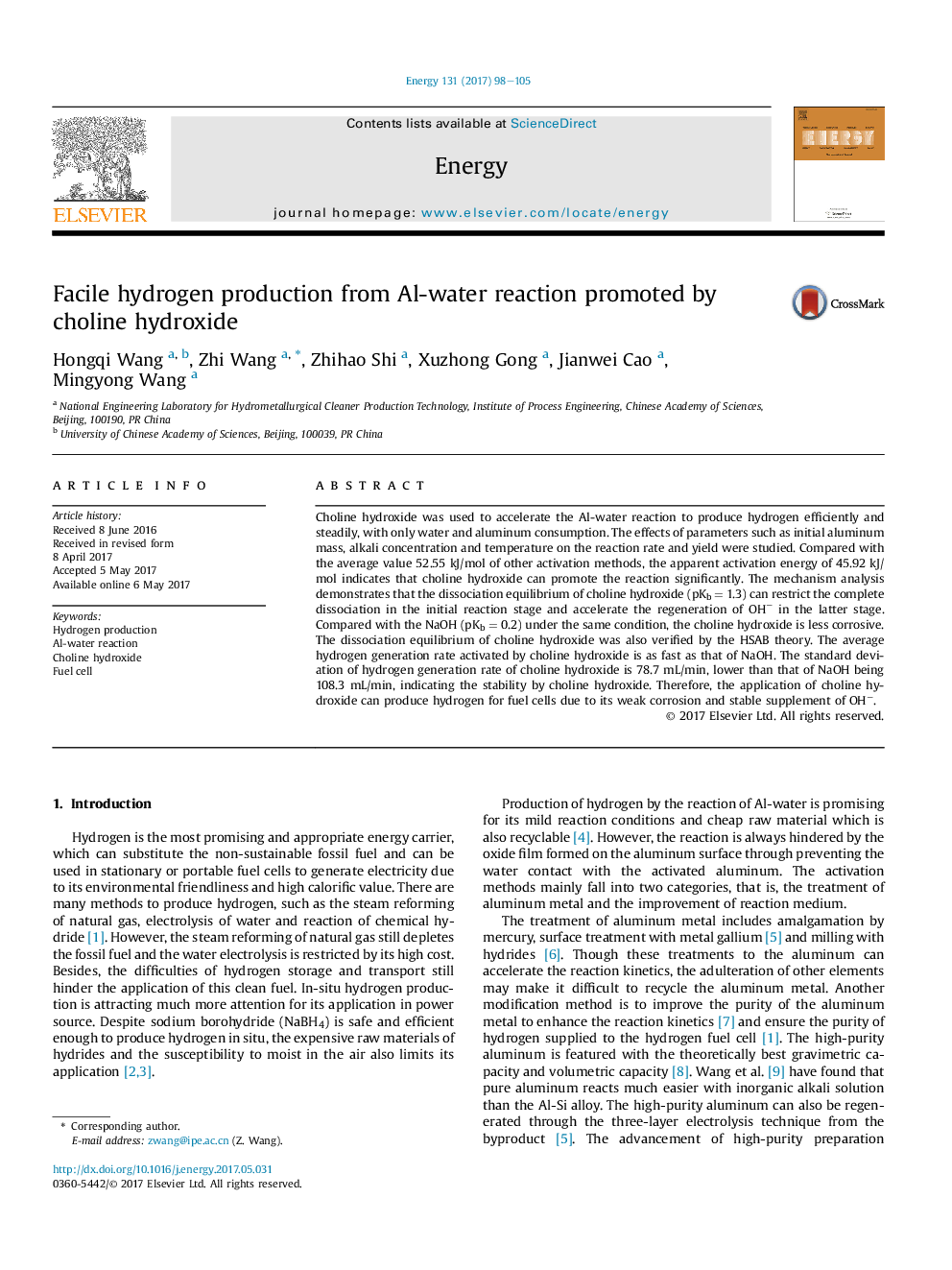| Article ID | Journal | Published Year | Pages | File Type |
|---|---|---|---|---|
| 5476761 | Energy | 2017 | 8 Pages |
Abstract
Choline hydroxide was used to accelerate the Al-water reaction to produce hydrogen efficiently and steadily, with only water and aluminum consumption. The effects of parameters such as initial aluminum mass, alkali concentration and temperature on the reaction rate and yield were studied. Compared with the average value 52.55 kJ/mol of other activation methods, the apparent activation energy of 45.92 kJ/mol indicates that choline hydroxide can promote the reaction significantly. The mechanism analysis demonstrates that the dissociation equilibrium of choline hydroxide (pKb = 1.3) can restrict the complete dissociation in the initial reaction stage and accelerate the regeneration of OHâ in the latter stage. Compared with the NaOH (pKb = 0.2) under the same condition, the choline hydroxide is less corrosive. The dissociation equilibrium of choline hydroxide was also verified by the HSAB theory. The average hydrogen generation rate activated by choline hydroxide is as fast as that of NaOH. The standard deviation of hydrogen generation rate of choline hydroxide is 78.7 mL/min, lower than that of NaOH being 108.3 mL/min, indicating the stability by choline hydroxide. Therefore, the application of choline hydroxide can produce hydrogen for fuel cells due to its weak corrosion and stable supplement of OHâ.
Related Topics
Physical Sciences and Engineering
Energy
Energy (General)
Authors
Hongqi Wang, Zhi Wang, Zhihao Shi, Xuzhong Gong, Jianwei Cao, Mingyong Wang,
